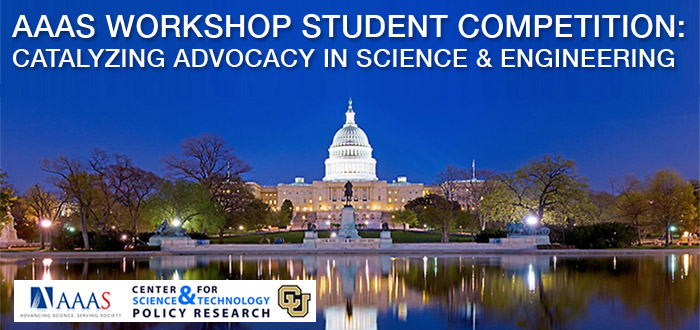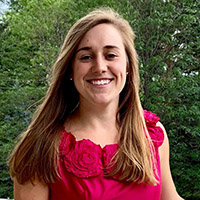
American Association for the Advancement of Science
"Catalyzing Advocacy in Science and Engineering" Workshop Student Competition
Reflections from the AAAS “CASE” Workshop
 Madeline Polmear
Madeline Polmear
Civil Engineering, University of Colorado Boulder
The AAAS “Catalyzing Advocacy for Science and Engineering” Workshop in Washington DC was an insightful and inspiring experience. The seminars, presentations, and interactive activities provided exposure to a wide range of science and technology policy issues from an impressive suite of experts. The workshop offered an engaging crash course in Congress, the legislative process, and the federal budget and covered topics including STEM education, the role of federal agencies, and civic engagement.
One of the greatest strengths of the workshops was the expertise of the speakers, presenters, and panelists. It was interesting to hear about the professional trajectories of people at all stages of their careers from recent graduates to lifelong public servants. Learning about their experiences and perspectives humanized policy. It was also insightful to hear about how the federal government works from people within it. They provided a more nuanced understanding of Congress and how its ultimate function is not to pass laws but to stop bad laws from passing. It was such a unique opportunity to learn about the structures and processes of Congress from the specialist who trains freshman lawmakers on procedural rules.
After the presentations and sessions, I gained a greater appreciation for advocacy and felt well prepared to represent science and engineering issues on the Hill. Although scientists and engineers might not feel like our work is a special interest, we learned that is how lawmakers perceive it. As a result, it is critical to advocate for federal support of research and the integration of research into policy. To be effective advocates, we learned the importance of communicating with a non-technical audience. As STEM graduate students, we rely on logic and data, but stories and personal connections resonate with lawmakers. The workshop culminated with a day on the Hill where the Colorado delegation met with staff members of Senators Bennet and Gardner and Representatives Neguse and Crow.
I am so grateful to the University of Colorado Boulder Graduate School, Center for STEM Learning, and Center for Science and Technology Research Policy for this transformative experience. Before the workshop, I had limited exposure to science policy and little understanding of how to engage in it. After the four days in Washington DC, I became more knowledgeable about federal legislation and appropriation, the importance of advocacy, and the role that scientists and engineers can play in policy. Most importantly, the workshop catalyzed my interest in science and technology policy and showed me how I can pursue it in my career.
